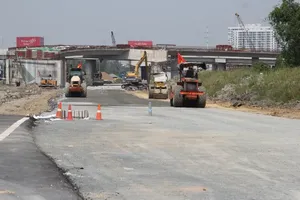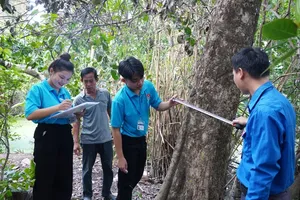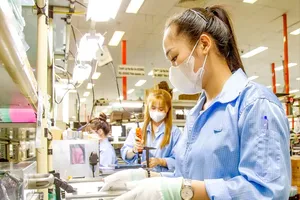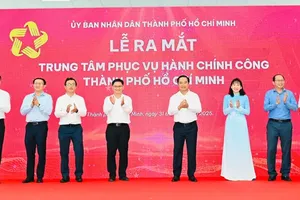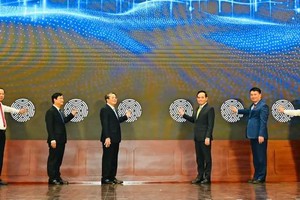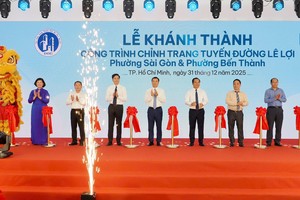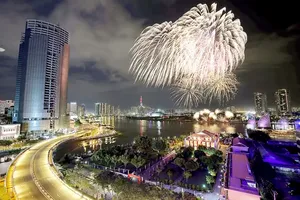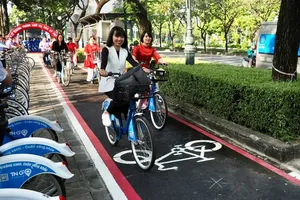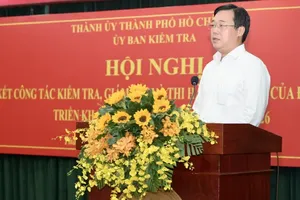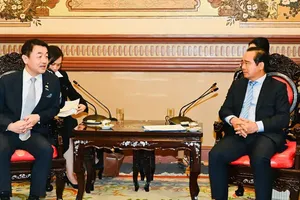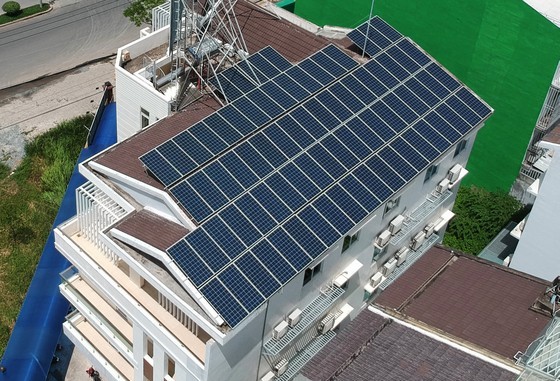 |
A household in Binh Chanh District of HCMC has installed rooftop solar energy |
Head Cao Tung Son of the Division of Hydrometeorology and Climate Change (under the HCMC Natural Resources and Environment) shared that as climate change has become increasingly complicated, green transformation is inevitable to maintain a healthy living environment and sustainable growth of the city.
Therefore, HCMC is working with the US Agency for International Development (USAID) to launch the project ‘Vietnam—Urban Energy Security’ (VUES), focusing on supporting facilities currently releasing a large amount of greenhouse gas emissions, improving the ability to prepare annual greenhouse gas inventory reports, researching effective water use methods in public units, and helping HCMC to reach net zero emissions.
The research team on net zero emissions in HCMC (member of VUES project) estimates that in 2050, the CO2 volume released into the air in HCMC is 245 million tonnes, most of which comes from energy consumption (commercial, industrial, and traffic aspects account for 89 million tonnes, 87 million tonnes, and 48 million tonnes, respectively).
Hence, there is a dire need to implement measures for green growth and emissions reduction in HCMC immediately.
Leader of the above research team Assoc. Prof. Dr. Ho Quoc Bang informed that his team has learnt from experience of successful cities in this matter such as Copenhagen (Denmark), Tokyo (Japan), Kolkata (India). They then adapt those lessons to the reality in HCMC to develop possible scenarios for emissions reduction with corresponding activities. accordingly, the city needs to promote rooftop solar energy, offshore wind energy, and waste to energy, as well as restructure its economy to include more green production.
Dr. Bang commented that Resolution 98 has allowed HCMC to pilot special mechanisms to boost recycling energy and green transformation. Therefore, the city should apply such content as soon as possible.
Dr. Pau Dargusch from Queensland University (Australia) – advisor for the VUES project – also stress the permit for piloting a mechanism to exchange carbon credits in HCMC by Resolution 98. It should be applied immediately to attract more finance and investment in coping with climate change and wisely use the decreased exhaust fumes amount gained from offset measures to reach the aim of reducing emissions.
He suggested the establishment of a unit different from other administrative agencies of the State, with a clear administrative structure, to support the above matter. This unit, in the short term, can identify projects with quick and easy implementation, as long as their benefits, emission reduction volume, and adjustments are suitable for the planning of HCMC. In the long term, the unit will develop cooperation initiatives with private organizations to help them calculate their own carbon accounts, and will carry out emissions reduction projects for offsetting purposes.
As to the launch of the VUES project in HCMC, the municipal Department of Natural Resources and Environment said that its sub-units have already held 3 training sessions for businesses in need about greenhouse gas inventory at grassroots level, helped 10 enterprises to prepare a piloting report on this matter, and proposed feasible solutions on water conservation for public buildings citywide.
In addition, to promote collaboration in the fight against climate change and the efforts to manage natural resources and protect the environment, HCMC has signed an agreement with the World Bank to form a Technical Team for Low Carbon Release. It is also working in Project No.TA9608 - REG about Capacity Building and Actions to Improve Air Quality, sponsored by the Asian Development Bank. The city is cooperating with the Environment Department of Osaka (Japan) to carry out the scheme Developing a Low-Carbon-Emission City.

